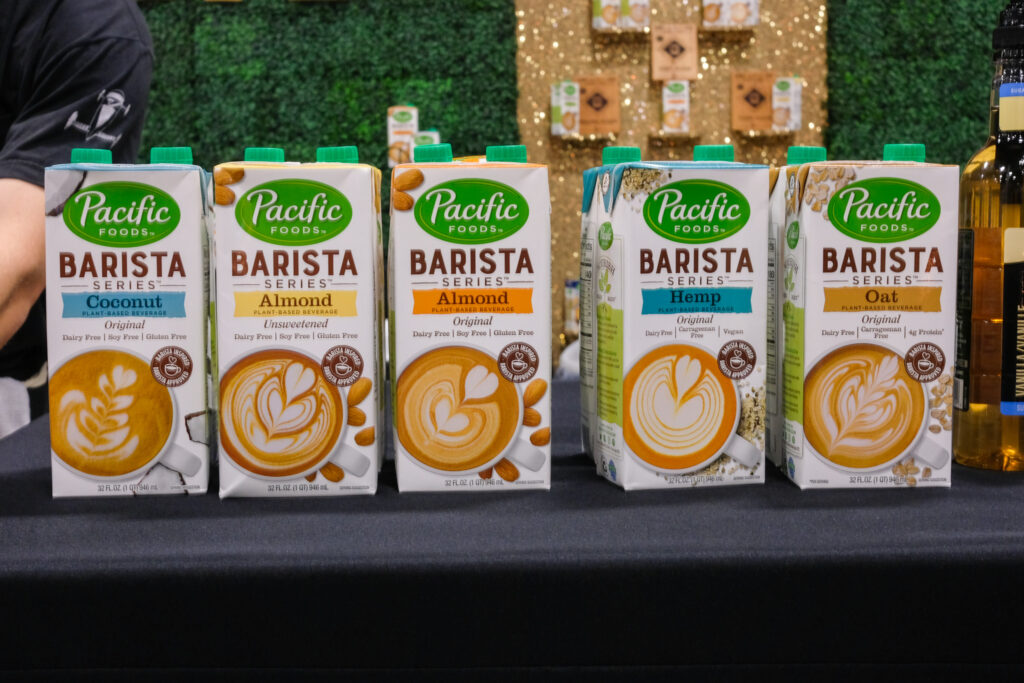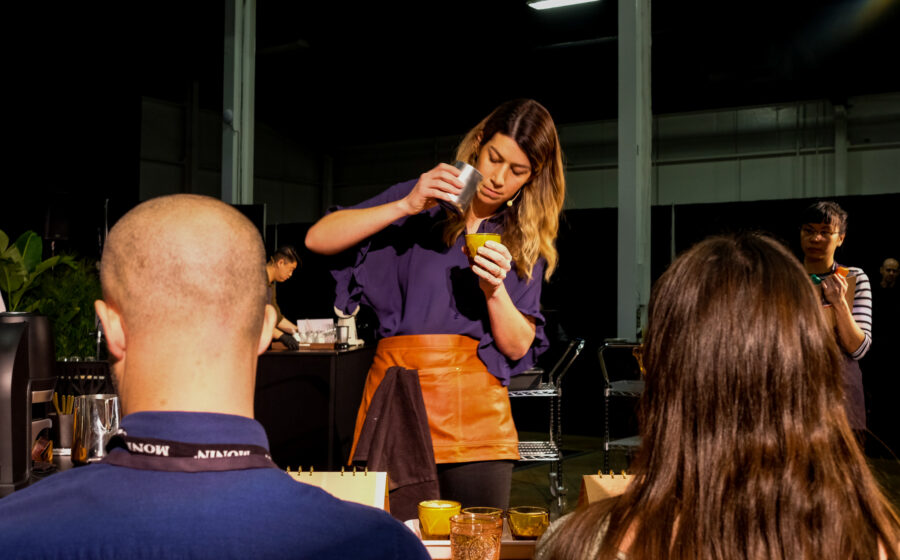On December 22nd, 2022, the Specialty Coffee Association announced updated rules and regulations for the 2023 Athens World Coffee Championships, including allowing competitors to use plant-based milk in the World Barista Championship (WBC). The changes mark the most significant revisions to the event’s rules since before the pandemic, the SCA said in a statement. Since the competition’s inception in 2000, competitors have been limited to using cow’s milk.
The announcement comes months after Mikolaj Pociecha, head roaster and director of quality for Suedhang, a coffee roasting company in Tübingen, Germany, published a widely-circulated open letter to SCA Germany. In conjunction with Suedhang, Pociecha demanded that SCA Germany, the organization that runs coffee competitions in the country, demanded that competitors be allowed to use alternative milk after being disqualified for using oat milk at the 2022 Frankfurt Coffee Festival.
“The rules are contrary to our ethical compass,” the letter states. “They discriminate against people with vegan diets, give a false image of the barista profession, humiliatingly force participants to work with animal products on a public stage and imply a huge waste of resources.”
The letter continued to threaten legal action against the organization unless the rules were adapted, an ultimatum that received quite a bit of public backlash in the comments section. Nevertheless, when the news broke, all eyes were on Pociecha.

“My social media just exploded the minute [it happened],” said Pociecha. “I’ve always viewed the association as a very progressive one, and I’m very grateful for all the innovation and ideas that come out of it every year. This was a very logical step for me.”
The WBC is, according to their website, “the preeminent international coffee competition,” with over 50 national champions vying for the title of world’s best barista. Held annually, competitors earn their spot by winning a national barista championship and go on to the world stage to represent their country. Baristas prepare four espressos, four milk-based beverages, and four signature beverages (any drink using espresso where the predominant flavor is coffee) for a panel of judges who evaluate the barista’s sensory and technical skills. The competition stage is watched closely and has inspired new ideas and innovative changes that ripple throughout the industry.
Barista competitors may now use any commercially available animal or plant-based milk for the milk beverage course, so long as it does not contain any added ingredients or flavors. Competitors will also be permitted to choose a group head temperature between 90.5-96 degrees Celsius (195-205 degrees Fahrenheit). Until this point, group heads were programmed to a set temperature that could not be adjusted.
Another major revision is the introduction of a new scoring system and scoresheets for both the WBC and World Brewer’s Cup Championships (WBrC), designed to decouple two different types of sensory analysis: descriptive (tasting notes like brown sugar or strawberry jam) and affective (does the coffee taste good or bad). The system aligns with an ongoing project by the SCA to revise the existing cupping form and protocols into a more holistic coffee value assessment tool.
Additional changes include a semi-finals round in the WBrC and opening sponsorship bids up to fully-automatic espresso machines for the 2024 World Latte Art & World Coffee in Good Spirits Championships.
Although the decision to expand milk options is particularly noteworthy, rule changes are common and come every few years. Changes often come from feedback from past competitors and reflect the shifting nature of specialty coffee—but there’s no indication that the new milk rule came from Pociecha’s letter.
The updates were planned and implemented by the Competitions Strategic Committee (CSC), a group of volunteers with wide-ranging industry and competition experience from all over the world. Most of the recently announced revisions were in progress for years but were put on pause to respond to the impact of the pandemic.
Joshua Edens, a volunteer on the committee, said the decision regarding plant-based milks had been a conversation amongst judges, competitors, and industry folks for a long time.
“It’s clear that other milks beyond traditional cow’s milk are a reality within the industry and should have a place in competitions,” she said. Edens continued: “It’s our goal to give the competitor and the competition’s format the most ability to succeed and expand and be a reflection of the coffee community.”
Although the new rules don’t automatically apply to the national stages, Edens is hopeful the announcement will create a model for future competitions.
“The conversation around when these changes will trickle down is still in discussion,” they said. “It’s the goal and intention [of the CSC] that competition bodies have as much support as possible in this transition.”









